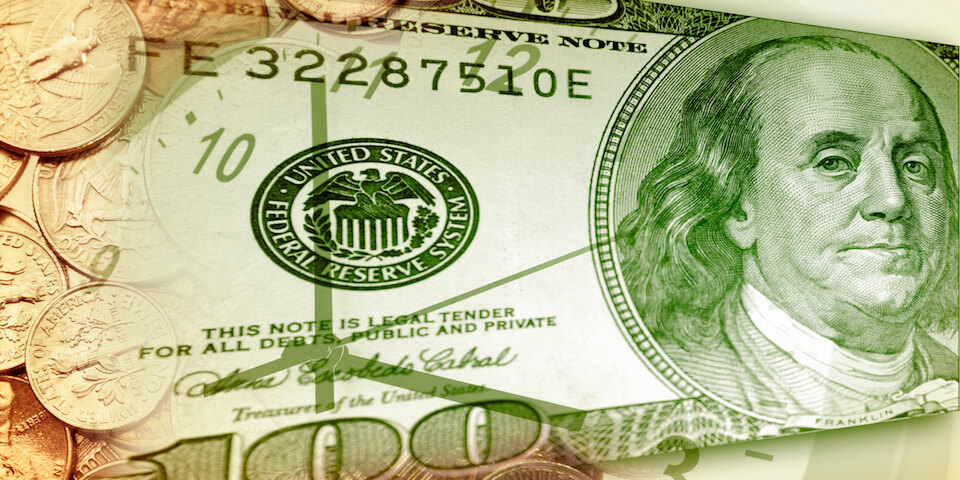In The News

Plan NOW to Build Your Emergency Reserves
Anything that can go wrong will go wrong.
That's Murphy's Law -- and it's a fact of life, especially if you're an expedite owner-operator.
Your truck breaks down, requiring a $2,000 repair and several days of downtime. Or, the high-dollar cargo you're hauling gets damaged, and now you're on the hook to pay the deductible. Or, you have an unexpected health issue that leads to high medical bills and lost income.
Whatever the emergency, you need cash to help you get through it and keep your business afloat. That's why it's so important to begin building your emergency fund today.
Here are three financial tools that can help you garner the cash you need in those crisis moments.
1. Interest-Bearing Accounts
Pro: It's your money, earning interest for you.
Con: You may not be able to save enough to handle certain emergencies.
These can either be savings, money market, or high-yield checking accounts, which are easy to access. And, when you don't need the cash, it's earning interest while parked in the account.
To find the best rates, try these online resources:
- Interest Checking Accounts: NerdWallet
- Savings and Money Market Accounts: Bankrate.com
Where can you find more cash to put into your emergency fund?
Look for potential cost-savings in your household expenses. Here are a few ideas:
- Review personal auto, home and health insurance coverages. Sometimes an increase in deductible can make a significant impact on lowering your premiums.
- Refinance mortgage. If you own your home, even a small drop in interest rate could generate substantial savings per month.
- Adjust cell phone plan. Does your current call, text and data plan fit your actual usage? If not, you could be paying excessive overage charges. Or, if you're consistently under your monthly allotment, you may be overpaying with the wrong plan.
- Eliminate personal checking account fees. If you're being charged monthly fees on your account, talk with your bank about the availability of free accounts or consider taking your business elsewhere.
- Cut the cord on home telephone service. When you go "all-wireless," you can eliminate the monthly cost for conventional phone service and put that savings into your emergency fund.
- Raise cash through recycling. Programs like Recyclebank give you opportunities to earn rewards for regular recycling, such as coupons for a favorite restaurant or other cost-saving benefits. You can also convert old electronics (such as cell phones) into cash through websites like uSell, Gazelle, and NextWorth.
With the extra money you put away each month, you'll accelerate the growth of your emergency cash reserves.
2. Credit Cards
Pro: You have flexibility in accessing cash beyond your savings.
Con: There can be expensive interest charges if the balance is not paid in full each month.
Emergencies don't always wait for you to fully fund your interest-bearing accounts. So, sometimes you need to expand your credit availability to serve as an insurance policy to help carry you through a crisis that requires more cash than what you have saved.
This is where credit cards can be helpful, if you manage them prudently. A couple resources for comparing credit card offers are CreditCards.com and Bankrate.com.
3. Home Equity Line of Credit
Pro: Borrow money at a much lower interest rate than credit cards.
Con: Your home will be at risk if you can't make the payments.
If you have sufficient equity in your home, a home equity line of credit could be a cost-effective option to quickly expand your cash reserve in case of a major emergency.
You can draw from the credit line as needed up to your available credit limit during the permitted draw period, which is generally 10 years. Typically there's easy access to your money through checks, online banking, and an access card that functions like a credit or debit card. Paying down the principal during the draw period allows you to replenish the amount of available credit you have.
The downside to keep in mind, however, is that the credit line is secured by your home. So, if you use this tool in emergency, be sure to put safeguards in place to make timely payments.
To learn more about the latest interest rates and options with home equity line of credit offers, see Bankrate.com.
The Bottom Line
The tips in this article offer general guidelines for expanding your pool of cash reserves. So, consult with your financial advisor who can walk you through the specifics of your situation to ensure you build up the right amount of cash reserves you need to keep your expedite trucking business afloat when Murphy's Law happens.
